Two winning designs selected in the 2020 City of Dreams Pavilion Competition
By Alexander Walter|
Monday, Feb 24, 2020
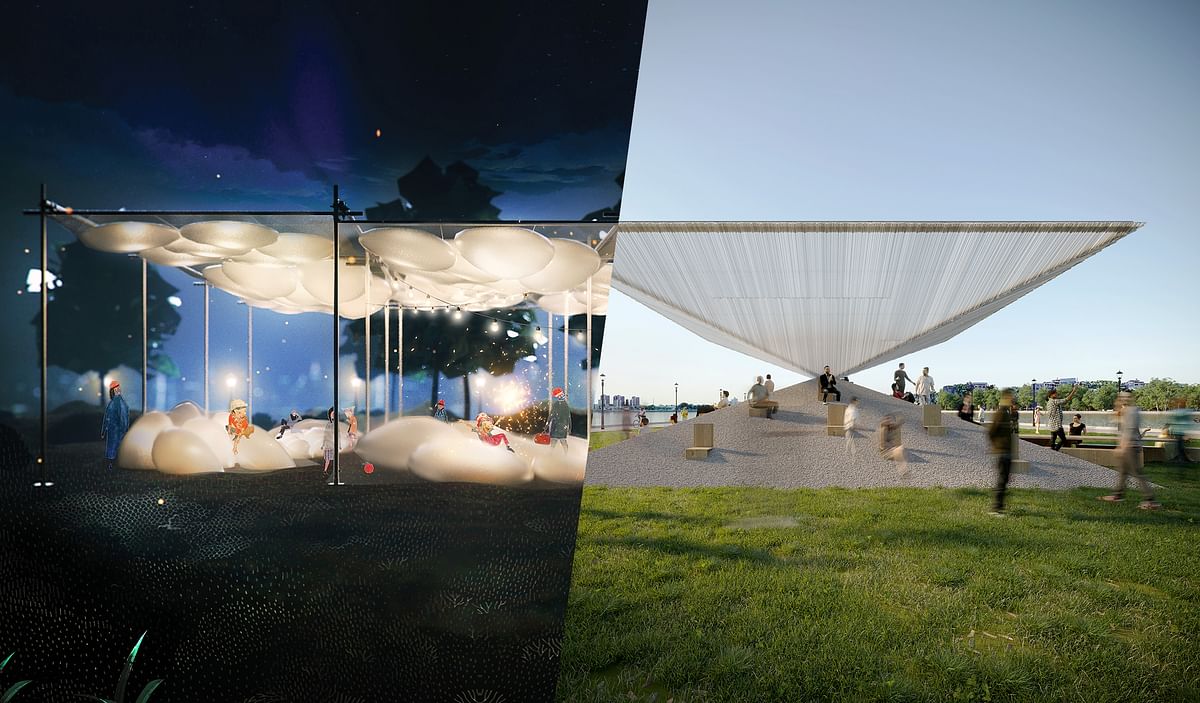
Related
The 10th annual City of Dreams Pavilion Competition has announced the verdict, and not one but two winning designs have been chosen this year: The Pneuma by Los Angeles-based designers Ying Qi Chen and Ryan Somerville as well as Repose Pavilion by Brooklyn-based architect and educator Parsa Khalili.
The jury reasoned that both entries had responded to the competition brief most creatively, envisioning a temporary gathering place while also considering the environmental impact of their designs and the full life-cycle of their materials. Both designs were selected from a field of five finalists that were unveiled in January.
Since time, space, and fundraising constraints only allow for one design to be assembled on New York City's Roosevelt Island this summer, the choice ultimately fell on The Pneuma. The pavilion will serve as event site during the arts festival FIGMENT NYC on June 6-7 and remain open to the public through early July.
Material support for The Pneuma has been received from EarthTex fabric maker Twitchell as well as scaffolding rental company Colgate, and a current Kickstarter campaign is inviting financial support for the fabrication, installation, and maintenance of the pavilion.
The design competition was organized by FIGMENT in collaboration with the Emerging New York Architects Committee of the American Institute of Architects NY Chapter and the Structural Engineers Association of New York.
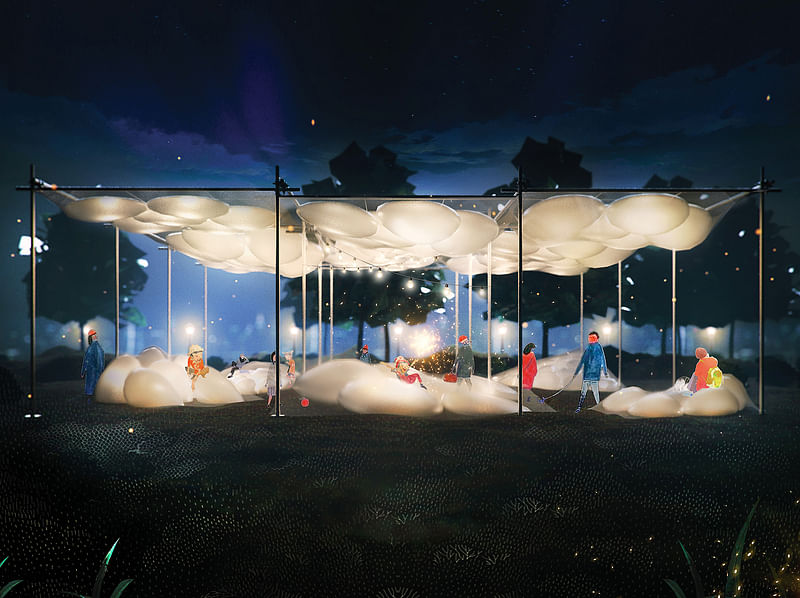
"The Pneuma by Ying Qi Chen and Ryan Somerville acknowledges that, in the world of construction, efficiency hinges on two factors: weight-to-volume ratio and scalability," explains the project description. "The Pneuma pivots away from traditional methods of building with rigid and massive materials, opting instead to use air. Although air is frequently explored as a building medium, there has yet to be a standardized mode of construction with it. In response, The Pneuma uses a finite set of mass-produced materials and typical assembly details to create an infinite set of formal expressions. Using recycled exercise balls, cradle-to-cradle fabric, and rented scaffolding, the designers will create a series of amorphous geometries that range from canopies to seating elements. The taut fabric registers nuanced air pressure changes in the inflated balls, generating an unlimited array of forms with a limited set of modules."
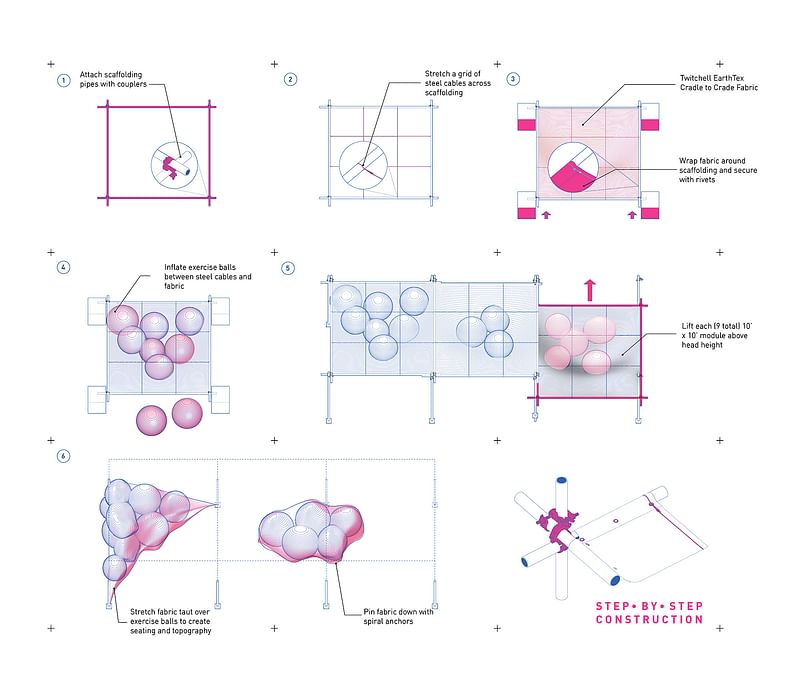
"Ying Qi Chen is an architectural designer with an interest in creating affordable designs by aestheticizing performative construction elements. Qi has previously collaborated with OMA, DS+R, and Philip Beesley. She is currently working at LOHA. Qi received her Bachelor of Architectural Studies from Waterloo University and her Master of Architecture from Princeton University."
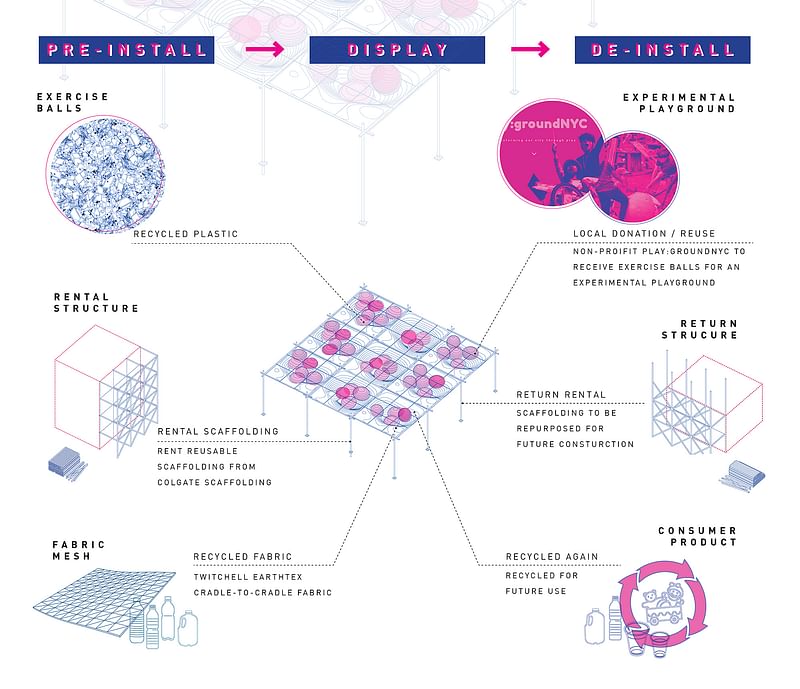
"Ryan Somerville is a motion graphics artist based in Los Angeles. His interest in cinematography and animation stems from performing and filming freestyle BMX during his formative years. Sommerville graduated from the Fashion Institute of Design & Merchandising in 2010 and has previously collaborated with Blur Studios."
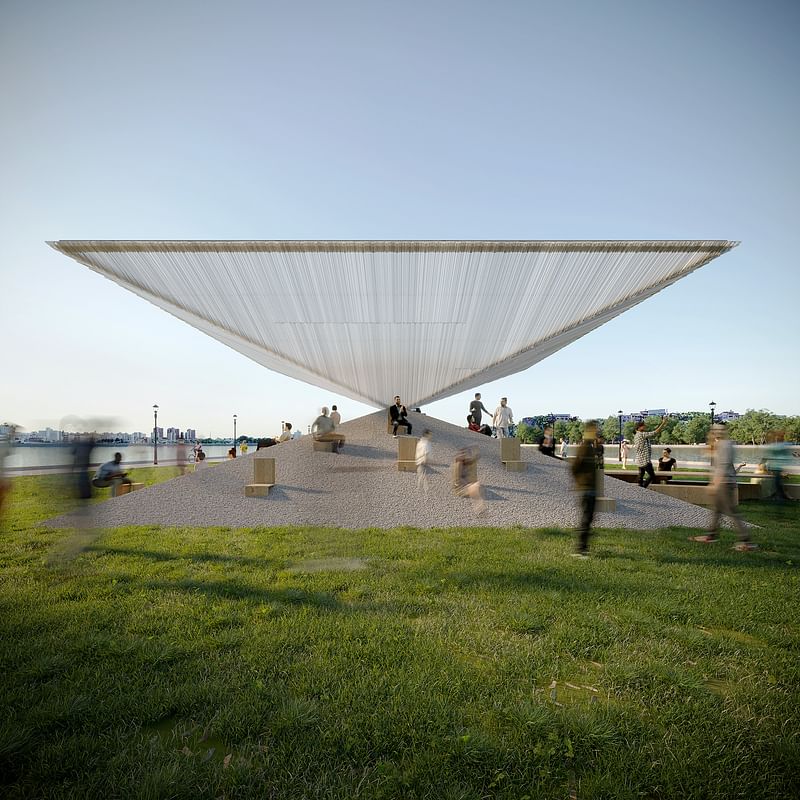
"Repose Pavilion by Parsa Khalili explores the angle of repose as both a natural phenomenon determined by the unique properties of a granular material but also as a semiotic device that serves as an important metaphor for the current environmental crisis. Repose Pavilion seeks to operationalize this sensed instability and derive an architectural language that informs, directs, and challenges architectural notions of tectonics, structure, and construction. The project’s conceptual basis stems from our society’s shift from a stable ecology to an unstable one, from solidity to fragmentation, from stasis to imbalance, from the natural to the man-made. Repose Pavilion represents this shift, instrumentalizes it as a concept, and creates an experience that compels visitors to contemplate where architecture and people will go next. The pyramid, one of civilization’s oldest formal products, is a symbol of balance and power. Through its doubling, inversion, and stacking, it produces an uncanny artifact, an architecture of perceived instability."
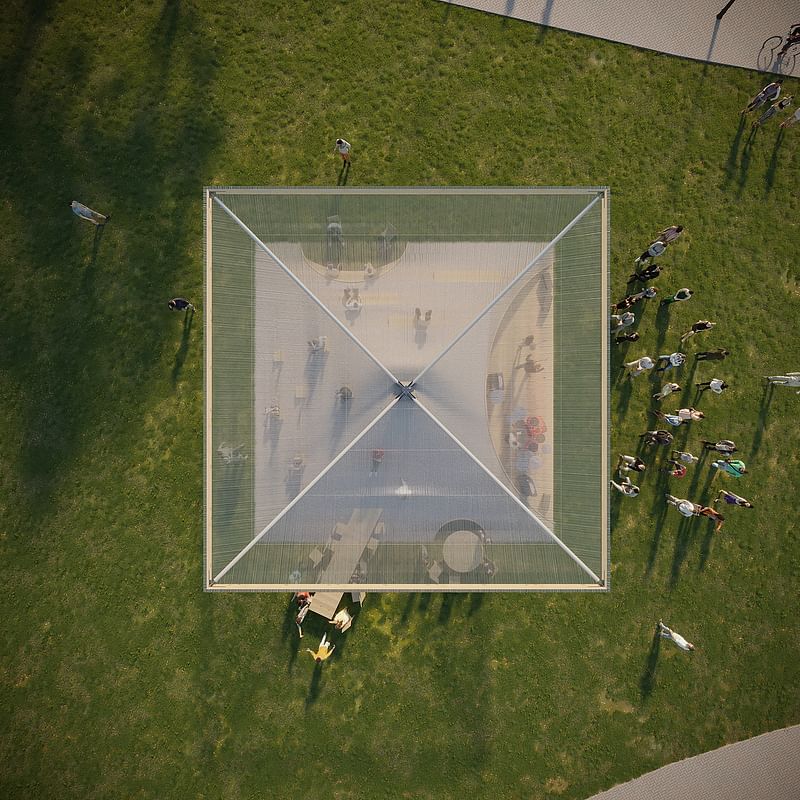
"Parsa Khalili is a licensed architect and educator based in Brooklyn and a Visiting Adjunct at the Princeton School of Architecture. He is a Partner at Karpf Khalili Architects, but also runs a small, experimental studio, WAZEONE, which develops architectural ideas through teaching, writing, competitions, and speculative proposals. His research and work have been supported and showcased by a broad range of international publications (Log, Project Journal, Nevertheless, Sharestan, Pidgin, SAC Journal) and institutions (Graham Foundation, SOM Foundation, Yale University, UIUC Board of Trustees). His interests focus on issues of design criticism, non-western forms of Modernism, visual and diagrammatic representations, and new digital media."
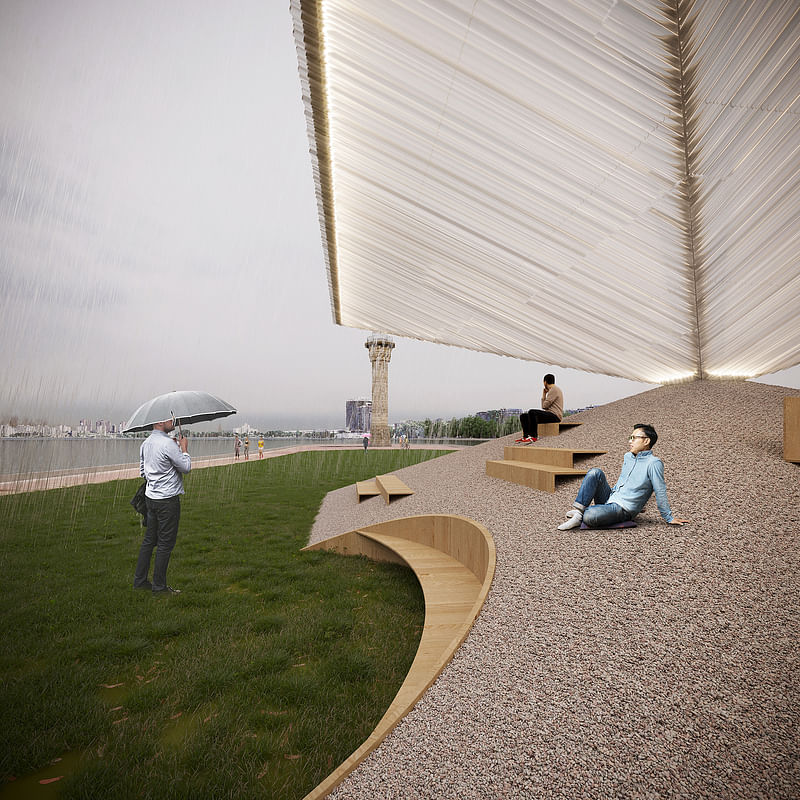
This year's competition jury comprised Victoria Arbitrio (Associate Partner, Gilsanz Murray Steficek); Scott W Briggs (Senior Associate, Skolnick Architecture + Design Partnership); David Eugin Moon (Partner, NHDM Architects PLLC; Adjunct Assistant Professor, Columbia University GSAPP); Martin Hopp (Principal, Martin Hopp Architect); and Katie Yamasaki (Muralist, Children’s Book Author; Illustrator MFA, School of Visual Arts New York).
The winners of the 2019 edition, Somewhere Studio’s
Jessica Colangelo (Assistant Professor at the University of Arkansas)
and Charles Sharpless (lecturer at the University of Arkansas), will support the winning team as design mentors.

RELATED NEWS Here are the finalist designs for the 2020 City of Dreams Pavilion on Roosevelt Island

RELATED NEWS Somewhere Studio's 2019 City of Dreams Pavilion now open in Roosevelt Island


Share
0 Comments
Comment as :